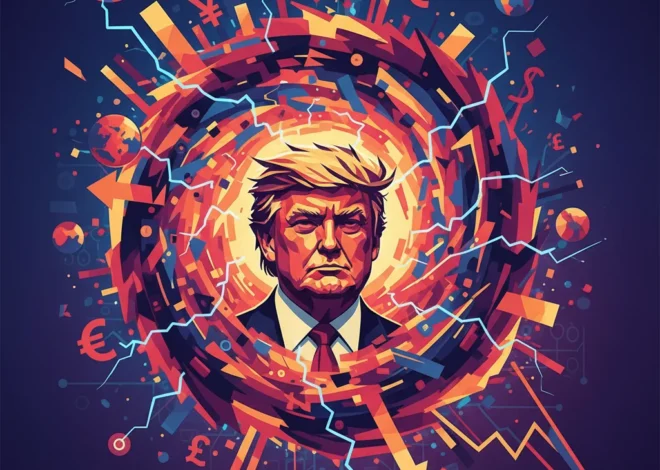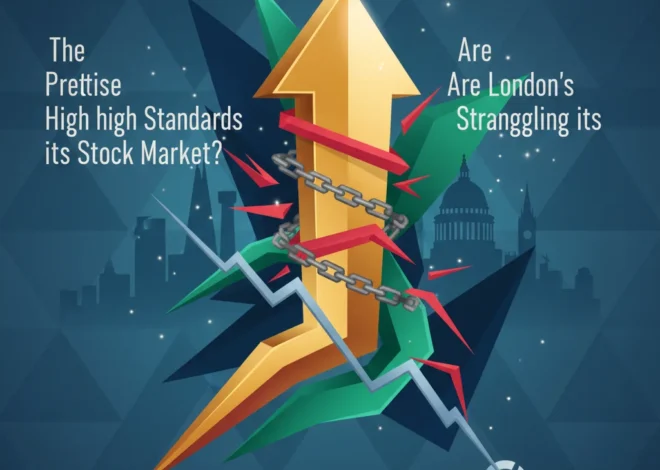
The Epstein Files Unsealed: A Black Swan Event for Wall Street and the Global Economy?
The recent court-ordered unsealing of documents related to the late financier Jeffrey Epstein has dominated headlines, sparking a firestorm of public debate and speculation. While the media focuses on the salacious details and the high-profile names mentioned, a far more significant story is unfolding for those in the world of finance, investing, and corporate leadership. This is not merely a tabloid affair; it is a seismic event with the potential to send shockwaves through the stock market, challenge the foundations of corporate governance, and redefine our understanding of systemic risk within the global economy.
For decades, investors have been trained to analyze financial statements, economic indicators, and market trends. We build complex models to predict earnings and chart the course of the stock market. Yet, the Epstein saga serves as a stark reminder that some of the greatest risks are not found in a balance sheet. They are hidden in private flight logs, exclusive social circles, and the undisclosed conduct of the powerful. The release of these files represents a potential “black swan”—an unforeseen, high-impact event that could trigger significant market volatility and expose deep vulnerabilities in the interconnected worlds of finance, business, and politics.
From Courtroom to Trading Floor: The Immediate Financial Contagion
The most immediate and visible impact of the document release will be on the stock market. Any publicly traded company whose executives, board members, or major shareholders are credibly implicated faces a catastrophic and instantaneous reprisal from investors. The mechanism for this is swift and brutal:
- Reputational Damage and Stock Sell-offs: A company’s brand is one of its most valuable assets. An association with a scandal of this magnitude can erase billions in market capitalization overnight. Algorithmic trading systems, programmed to react to negative news sentiment, will likely trigger automated sell orders, exacerbating the downward pressure. We saw a similar, albeit different, dynamic with the Volkswagen emissions scandal, where stock prices plummeted over 30% in two days as trust evaporated (source).
- Leadership Crises: If a CEO or key executive is named, the company will be plunged into a leadership vacuum. The board will face immense pressure to act, leading to forced resignations or terminations. This uncertainty paralyzes strategic decision-making, spooks investors, and can derail long-term growth projects. The stability of the entire banking and finance sector relies on the perceived integrity of its leaders.
- Credit and Banking Relationships: The impact extends beyond equity. A scandal-plagued company may find its credit rating downgraded, making it more expensive to borrow money. Banks and financial partners may sever ties to avoid “headline risk,” restricting the company’s access to capital and crippling its operations. This creates a domino effect throughout the financial ecosystem.
For the active trader and the long-term investor alike, this situation introduces a new, unpredictable variable into the market. Traditional economic analysis falls short when the primary driver of a stock’s value becomes a court filing rather than a quarterly earnings report. The Trillion-Dollar Pivot: Why Latin America's Green Transition is the Next Big Play in Global Finance
A Litmus Test for Corporate Governance and ESG Investing
For years, the concept of ESG (Environmental, Social, and Governance) investing has been gaining traction. The Epstein case is poised to become the ultimate stress test for the ‘G’ in ESG. Governance is not just about board composition or executive pay; it’s about the ethical framework, accountability, and character of a company’s leadership. This scandal pushes the abstract concept of governance into a stark, tangible reality.
Investors are now forced to consider difficult questions:
- Did the board of directors have any knowledge of an executive’s association with Epstein?
- What level of due diligence is being performed on the private lives of key personnel?
- Are there “key person” risk clauses and succession plans robust enough to handle a sudden, scandal-driven departure?
A 2021 study published in the Review of Finance found that firms with CEOs involved in personal misconduct scandals saw their stock values drop by an average of 4.1%, representing a staggering loss of shareholder wealth (source). The Epstein case amplifies this risk exponentially. This is no longer a peripheral concern for socially conscious funds; it is a core financial risk management issue for every institutional and retail investor.
The table below outlines the potential cascading effects a scandal of this nature can have on a corporation, illustrating why strong governance is critical to long-term financial health.
| Area of Impact | Short-Term Effect (0-6 Months) | Long-Term Effect (6+ Months) |
|---|---|---|
| Stock Price | Sharp, immediate decline; increased trading volatility. | Depressed valuation; loss of investor confidence; potential delisting. |
| Brand Reputation | Negative media coverage; consumer boycotts. | Permanent brand damage; difficulty in marketing and sales. |
| Credit Rating | Potential downgrade watch by rating agencies. | Higher borrowing costs; restricted access to capital markets. |
| Employee Morale | Distraction and uncertainty; loss of trust in leadership. | Difficulty attracting and retaining top talent; reduced productivity. |
| Regulatory Scrutiny | Inquiries and investigations from bodies like the SEC. | Costly legal battles, fines, and mandated compliance overhauls. |
This framework demonstrates that the consequences are not isolated. They are interconnected, creating a negative feedback loop that can cripple even a financially sound company. Market Tremors: How a GOP Power Struggle Could Reshape Your Investment Portfolio
The Macroeconomic Fallout and the Quest for Technological Solutions
Beyond individual companies, a widespread loss of faith in corporate and financial elites can have chilling effects on the broader economy. If the public perceives the system as fundamentally corrupt or rigged, it can lead to a decline in consumer confidence and investment—two key drivers of economic growth. This crisis of trust could dampen everything from retail spending to participation in the stock market, impacting the very foundations of our market-based economics.
In the wake of such scandals, there is always a call for greater transparency. This is where emerging financial technology may play a future role. While not a panacea, technologies like blockchain offer intriguing possibilities. The core premise of blockchain is a decentralized, immutable ledger. In a hypothetical future, this could be applied to create more transparent systems for tracking political donations, lobbying efforts, or the ownership of complex assets. This vision of “radical transparency” in finance and governance, though still distant, is a direct response to the kind of opaque networks of influence the Epstein case has exposed. The evolution of fintech is increasingly driven by a demand for systems that are less reliant on the trustworthiness of individuals and more on the integrity of the technology itself.
The initial bill to release these files, which culminated in the recent court actions, was a legislative move capping a long saga, as noted by sources like the Financial Times. This political pressure, combined with judicial action, underscores a societal demand for accountability that the worlds of finance and technology cannot ignore.
Navigating the Uncertainty: A Guide for Investors and Business Leaders
In this volatile environment, a passive approach is insufficient. Both investors and corporate leaders must be proactive.
For Investors:
- Stress-Test Your Portfolio: Evaluate your exposure to companies with high “key person” risk, where the firm’s success is inextricably linked to a single individual.
- Prioritize Governance: Look beyond the numbers. Investigate the quality of a company’s board, its code of ethics, and its history of handling controversy. Strong governance is your best defense against this type of black swan event.
- Diversify: Ensure your portfolio is not overly concentrated in any one sector, especially those like luxury goods, private banking, or exclusive hospitality that may have a higher propensity for exposure to these networks.
For Business Leaders:
- Reinforce Ethical Frameworks: This is the moment to go beyond boilerplate ethics policies. Conduct meaningful training and establish a culture where accountability is paramount, from the C-suite to the mailroom.
- Enhance Due Diligence: Boards must implement more rigorous background checks and ongoing monitoring for all key executives and directors.
- Communicate with Stakeholders: In times of uncertainty, transparency is key. Proactively communicating your company’s commitment to ethical conduct and robust governance can reassure investors, employees, and customers.
Beyond the Handshake: Why UK plc is Demanding More Than Just Reassurance from Downing Street
Conclusion: A New Paradigm of Risk
The unsealing of the Jeffrey Epstein documents is far more than a media spectacle. It is a defining moment for the modern economy, fundamentally altering the calculus of risk for investors and corporations. It proves that the greatest threats to value may not come from market downturns or economic cycles, but from the moral and ethical failings of individuals in positions of immense power. The shockwaves will force a necessary and painful reckoning, compelling the financial world to place a higher premium on transparency, accountability, and genuine corporate governance. For those who heed its lessons, it is an opportunity to build more resilient companies and more robust investment strategies. For those who do not, the consequences could be devastating.


